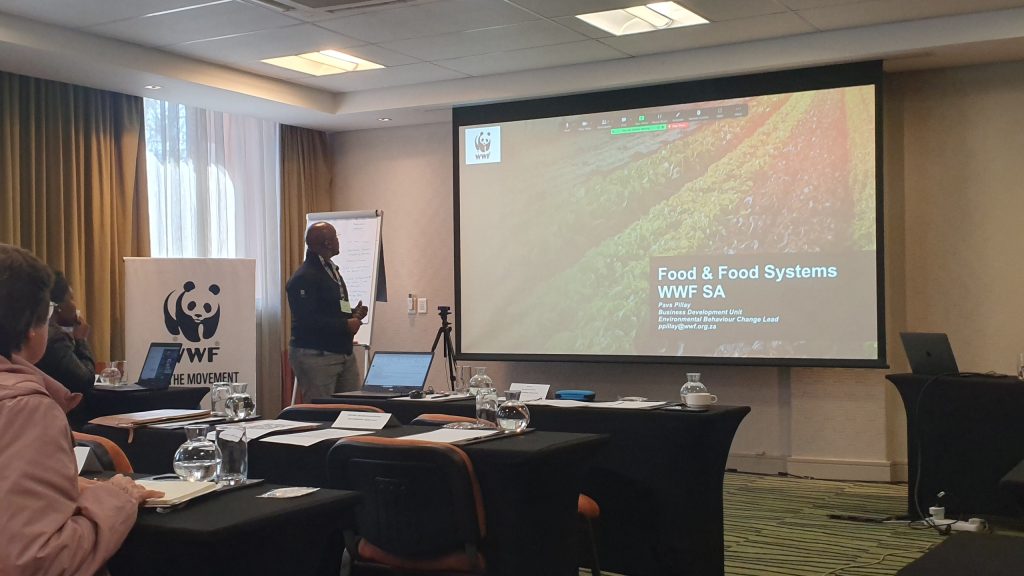The South African focused CLIF-workshop was held in Cape Town on the 16th & 17th August to explore:
- Life Cycle Analysis of key commodities
- Policy insights and recommendations to promote sustainable diets
- Development of South-African consumer needs for a globally applied consumer-friendly tool that helps promote sustainable food choices, from trolley to plate
The face-to-face workshop attracted a diversity of top-notch industry leaders who enthusiastically contributed to discussions on the challenges, barriers, patterns and opportunities in this complex arena of food and climate. Voices in the room included: Retailers -SPAR & Woolworths; Research institutes- Durban University of Technology, University of Stellenbosch, CSIR, The Green House, The Sustainability Institute; Producers – Fruitways; Food Banks – Food Forward SA; Eco-labels- Marine Stewardship Council; Manufacturers-RCL Food; Farmers- Phillipi Horticulture Area, Vergelegen, Klein Constantia & Hasher Family Estate; Officials from local municipalities like City of Cape Town; and NPO’s – Green Cape & Southern African Faith Communities Environment Institute.
The one-and-a-half-day workshop included presentations on:
- Ambitions of the CLIF project from WWF Germany
- WWF South Africa’s work on Food and Food Systems
- Interim results from a study on political instruments for healthy and sustainable food consumption.
- Accessing the footprint of food and updates from South African case studies
- Lessons learned on consumer information in Paraguay from Climate Change and Policy Director, WWF Paraguay
- Consumer Market Analysis: Lesson Learnt from WWF Southern African Sustainable Seafood Initiative and WWF Conservation Champions sustainable wine label
- Survey results from South African Consumer & Company Impacts of Foods Study
Rich discussions were interspersed between power-packed presentations revealing a wealth of insights from industry and thought leaders. Discussion ranged from indigenous and traditional foods, to formal and informal markets where South Africans access food, to retailer floor layouts, incentives and disincentives around healthy & sustainable food, eco labels, laws on sustainable foods, child nutrition, marketing of healthy foods, social aspiration, ESG reporting, global & local solutions, farmer subsidies, policy versus action, political will, behaviour change and almost everything in-between.
In such rich discussions, more questions arise, which will aid toward the desired policy and consumer tool solutions. Given that this is one of the first workshops and projects of this nature, we lay a foundation to build toward solutions in the arena of climate and food. WWF, being a thought leader, successfully facilitated the meeting of multiple minds in the food sector toward a common goal, and the multitude of emerging ideas will be scoped to arrive at useful and feasible solutions. From idealism to realism the workshop enabled a fair share of “envisioning the future we want”, and ideas on what needs to be done, and by whom, to get there. Knowing the climate impacts of our food is a collective responsibility and the right people in the room is a good start! The various aspects and actors of the food value chain may exist with their own perspectives, hopes & challenges, but therein lies the power of synergy to be part of a better world, for all.
